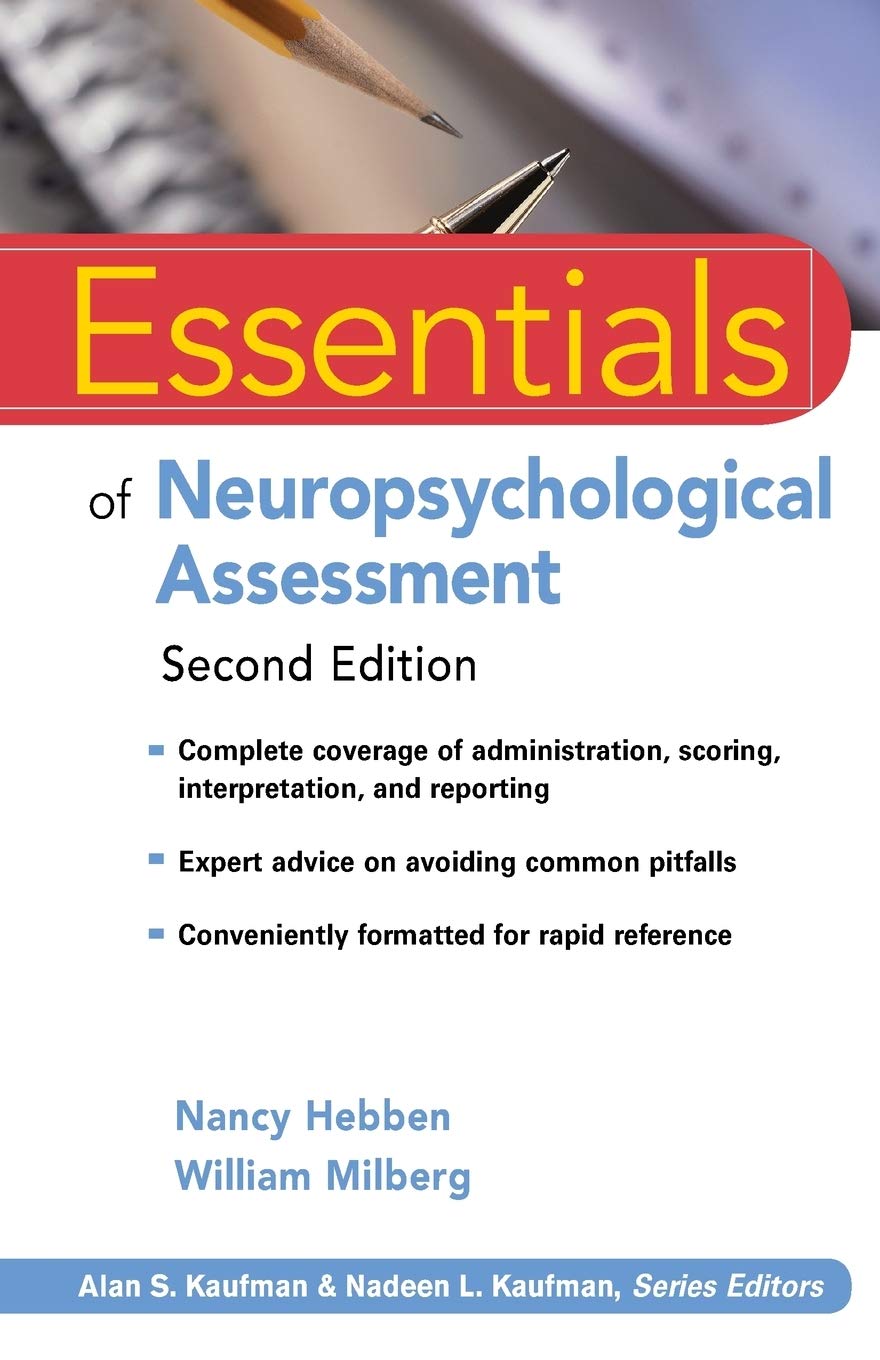Customer Services
Copyright © 2025 Desertcart Holdings Limited


Essentials of Neuropsychological Assessment
L**L
Lay person's perspective: excellent overview
I bought this book so that I could better understand the processes a clinical neuropsychologist uses to prepare for an evaluation, and how the evaluation is administered.Five months prior to purchasing this book, I was admitted to the hospital with TBI (traumatic brain injury) with multiple fractures. After a month in the ICU, I was admitted to in-patient neuro rehab. Initially I could not identify the month, year, who the president is, or even where I was or why. After a month of in-patient and several months of outpatient speech and occupational therapy, I had recovered fairly well, and it was recommended a neuropsychological assessment be completed prior to return to driving and full time work I wanted to know more about what an assessment was like.From the layperson's perspective the sections are organized in a logical manner. The introduction gives a good overview of the history of neuropsychology, defined as the study of brain-behavior relationships. Subsequent chapters cover skills, education and training for clinical neuropsychologists, and then goes into the testing process.The testing process is adequately described in sections covering interviewing and clinical history, test selection, administrating and scoring, and interpretation. It lists categories of tests and brief descriptions of their application, but does not go into details of individual tests. There are also sections on report writing and special issues such as dealing with language and cultural differences and handling of malingering.Overall I found this book to be as described, a handy reference book for clinicians, while not being overly technical so that it is understandable to the layperson. It provides a very good overview, and I imagine it is also a useful reference for professionals in the field.
D**N
Good general introduction, helpful to experienced practitioners
This book provides a solid review of basic aspects of neuropsychological assessment. It does an excellent job of addressing diagnostic issues (sensitivity and specificity, the importance of considering base rates, differentiating normal from abnormal performance etc.)It is aimed at the clinician and spends less time on neuroscience issues that do not have a direct bearing on what neuropsychologists actually do. Many different assessment tools and techniques are discussed. I would have like to see more critical analysis of the different instruments but perhaps this can be addressed in subsequent additions.
W**K
Needed for class
I needed this book for class. It is one of those books that you keep using after you are done with class. Very useful. Not an entertaining book but very useful.
P**H
very good entry level book about this subject
This book is a terrific intro to Neuropsyc testing; my supervisees have said it's easy to understand as well! Not detailed enough to use w/o others, but as someone in the field, it is a good easy reference.
A**R
Five Stars
Excellent book!
B**R
assessment
good services. It arrives early than the expected date. It is a new book without any broken pages. Thank you.
K**N
Not for the advanced
While I certainly agree that this would be a great book for beginners, for someone who has taken a few assessment classes this would mostly be old news. I bought this book to help me delineate between Neuropsychological assessments and other assessment techniques and to fill me in on commonly used neuropsychological tests. To the book's credit, it did answer my questions, just not at the depth I was looking for. The first half of the book discusses general assessment techniques, most of which I already knew, and doesn't get to commonly used tests until the second half (and even then it is only extremely brief descriptions). On the other hand, the text is written beautifully, and is easy to understand and follow along. Another thing I particularly liked about this book is that at the end of each chapter there is a mini-quiz to test your knowledge -- particularly useful for any students who may be taking this course. As such, I would recommend this book to beginners, but suggest something else for those who are more familiar with psychological testing.
C**E
If you're in testing you need this book
This is a quick, easy to understand guide to understanding neuropsychological assessment. It is a great companion to any of the common neuropsychological tests (i.e Luria-nebraska) as a reference. It also provides a comparison among the more common assessment tools.
Trustpilot
1 month ago
2 months ago